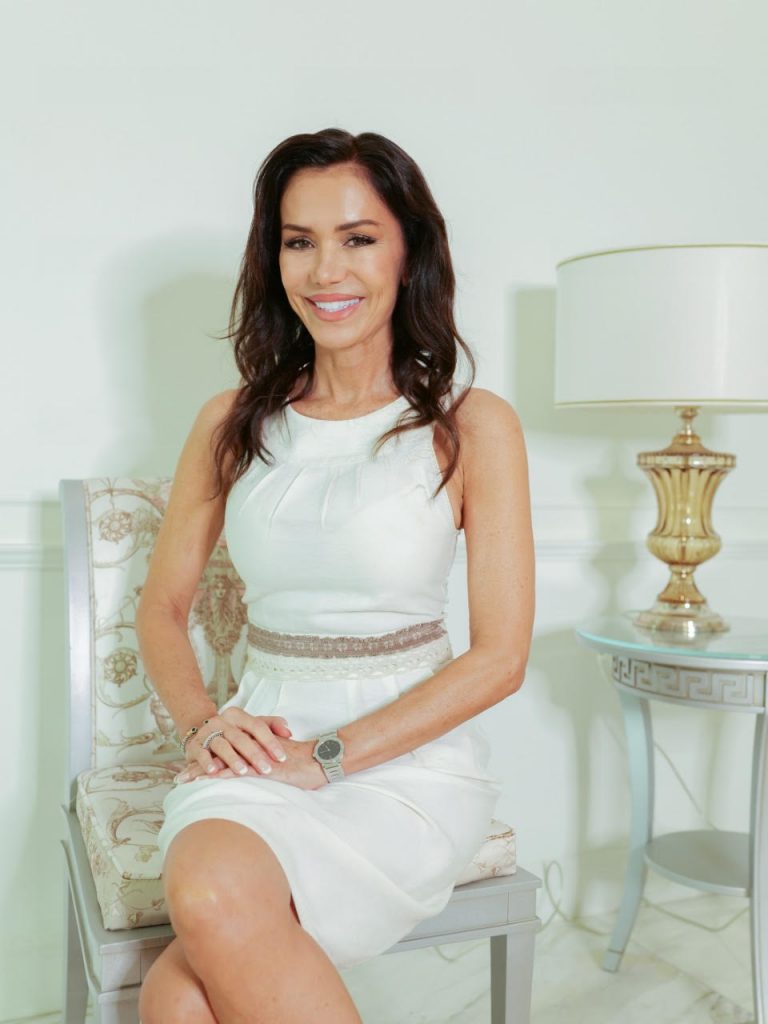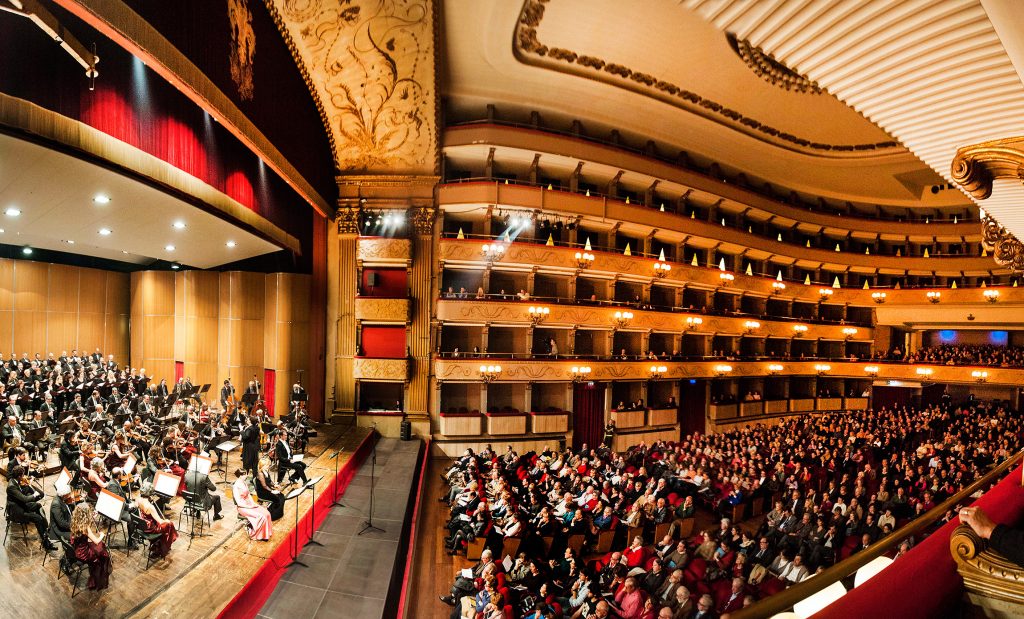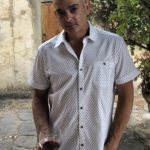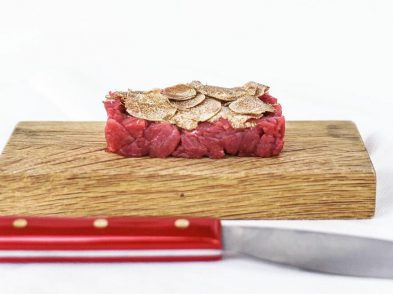Valentina Castellani-Quinn was born into the Florentine family who owned the Teatro Verdi for generations. Fascinated with all aspects of theater, she studied fashion design in Florence and finished her degree in New York before moving to Los Angeles to begin a career in film. She is now an award-winning producer and the president and chairman of Quinn Studios Entertainment, which continues the legacy of Academy Award-winning actor Anthony Quinn (Viva Zapata!, Lust for Life). Having produced many Academy Award-nominated films, she is the recipient of the prestigious US Congress Award, the Human Rights Award and the English WIFTS Award as a “Visionary Producer” together with former Chancellor of Germany, Angela Merkel, and actress Gal Gadot. Due to her ethical work as a producer and her service to global society, she has addressed a multitude of international organizations, including the US Congress, the UN, UNESCO and the YPO/Young President Organization. Ms. Castellani recently founded Celebrating Life, a company intended to mesh the creative energies of the industries of business, entertainment, fashion, film and sport. Valentina Castellani-Quinn sat down with The Florentine to discuss how her Tuscan background informs her life and her work.

Where did you grow up in Florence?
I grew up on viale Milton, in a very beautiful part of town near the Fortezza gardens. Right now, though, I have a house behind the Pitti Palace with a view overlooking Florence in a historical area near the Ponte Vecchio.
How often are you in Florence?
It really depends on my work schedule. I was there for many months during Covid as I had the privilege to be much freer in my commitments. I was there in December once I’d finished some Oscar campaigns in America. I’m now working on helping a film called the Last Film Show. It is a movie from India, like a Cinema Paradiso, written and directed by Pan Nalin. It won at the Tribeca Film Festival and many other festivals. It is beyond beautiful and was distributed in Florence in December. I couldn’t wait to see it when I was home for the holidays.
When you’re not home, what do you miss most about Florence?
The piazza. The idea of just going out. You can go to the square by 6pm and you’re going to meet your friends. You’re going to have that kind of social moment that is part of the lifestyle and structure of the city. It is part of the DNA of Italian people and I really miss that sense of the city being alive on its own. At any moment, you can just be part of it. In Los Angeles, just like pretty much every American city, you have to make an appointment. There is no place where you are confident you will see the people and that you are welcome. In America, we don’t have that gathering aspect of society, which I think is very important, especially for a creative mind, but for everybody as well. I miss this very much when I’m in LA, although Malibu, where I live, is a village, and it does, thankfully, have places to gather and enjoy people spontaneously like an Italian piazza. Almost.
Are there connections back to Tuscany in other aspects of culture in Los Angeles?
Yes! The Italian Cultural Institute in Los Angeles does marvelous work to unite the community here through events. They bring over Italians, from Florence or other regions, to present exhibits or give lectures. It’s a great way to stay connected.
Do you miss the seasons of Tuscany?
The fall, yes. The winter not too much. I spend the holidays in Florence with my family and I love being here for Christmas and New Year’s. I’m very glad though to return to Los Angeles afterward as it’s a beautiful time of year in California. The Tuscan winter can be harsh and there is hardly anything to do. But the fall is lovely and I also love the summer. June in Florence is fantastic. You stay out until 2am and it’s warm. It’s so joyous around the piazzas and in the streets.
Are there any places in America that remind you of Tuscany?
The Napa Valley has a bit of a Tuscan feel to it, when thinking of the vineyards and the landscape. There’s a village not too far from Los Angeles called Ojai that has the same wine country feel of Tuscany. But Tuscany is a very unique place. It’s in our heart no matter what and it’s difficult to find that kind of natural beauty anywhere else and what the land offers in terms of wine, food, olive oil, etc. It’s also just the feel of Tuscany. The light. Every place has a DNA and Tuscany has its own, even compared to the rest of Italy. I meet a lot of Americans and they always want to buy a house in Tuscany. It’s not because there are no other beautiful regions in Italy, but somehow Tuscany sticks more in people’s hearts.

Besides the things we’ve already covered, what else makes Tuscany so special?
Oh, I could go on and on, but I think the traditions connected with the places within Tuscany are very important. Every one of these villages, for example, have traditional sagre or festivals throughout the year. This gives you a sense of continuity in a world that is so fractured, especially nowadays, but these old traditions hardly ever change, and it provides a sense of continuity. The traditions reassure you about our connection to humanity and to each other.
Other than meeting friends in the piazza, what’s your favorite thing to do home in Florence?
I love the restaurants, enjoying them with my family and friends. One thing I’ve rediscovered at this point in my life are the museums. I’ve been to many of them throughout my life, but now I really enjoy experiencing them with my daughter. Maybe there’s a museum that you went to often when you were younger, and you know the paintings and the sculptures, but it can be a different experience when going with someone for their first time. Recently I took my daughter to the Accademia to see the work of Michelangelo, the David and the rest of these sculptures, and I was mesmerized. I have a Master’s degree in fine arts, so I know how to look at art, but I saw the work now through different eyes. I remember much about how I perceived the sculptures before, but now I was able to see it again with a more mature point of view. I thought differently about what these artists were doing so long ago, and there’s still such beauty in their images, humanity and aspects of our creativity that are preserved emotionally and physically through so many centuries. It’s unbelievable. I also brought her to the Uffizi. Just to look at those paintings of Botticelli is majestic.
Is there something that you bring to your role as a producer in America that derives from your experience as a Florentine?
Everything. We are nobody if we don’t remember where we come from. This is something I always keep in mind. Our origins anchor us in our values, but also we have a certain way of perceiving people and the world through a system that we’ve created emotionally from our birthplace and it stays with us throughout life. There’s always that connection. The way I work is different from other producers and the way I pick projects is different again. It’s connected to who I am as a person, as an Italian and a Florentine especially.







